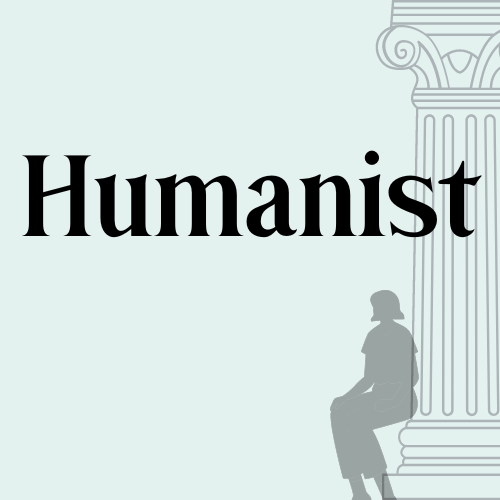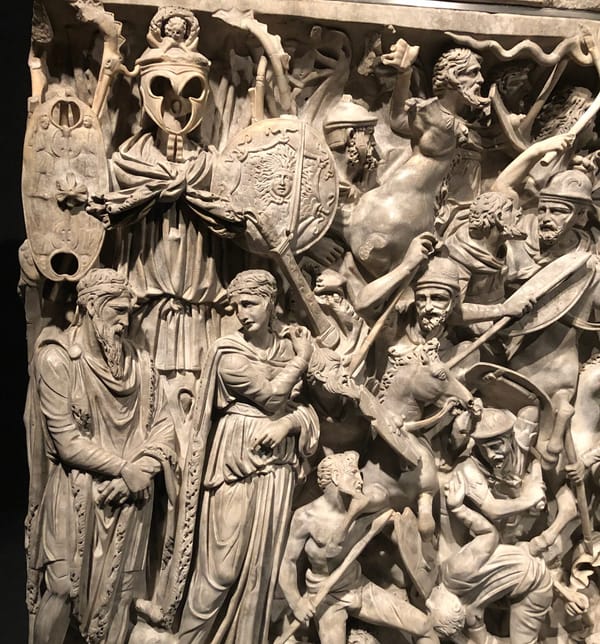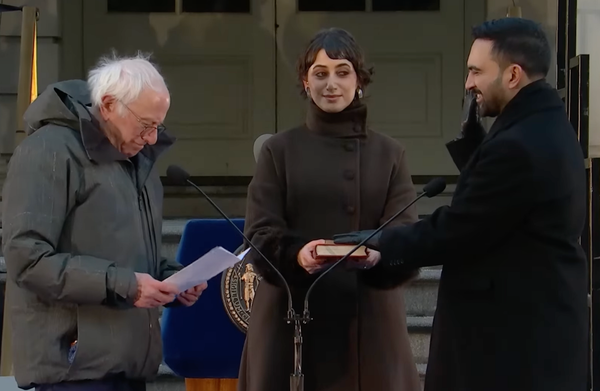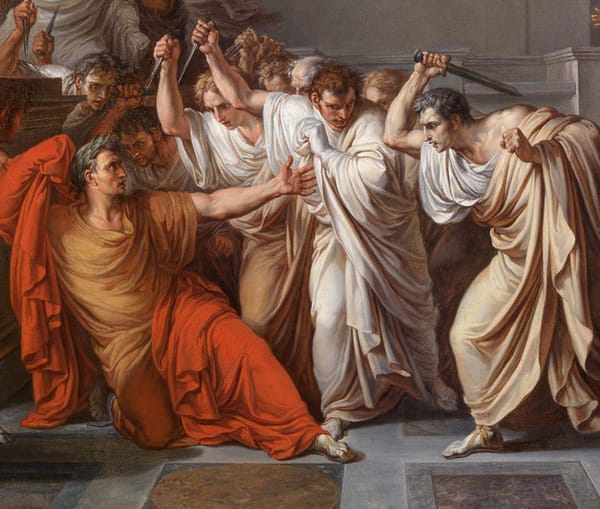Reviving academic integrity: Part I - Dishonesty as a Design Challenge
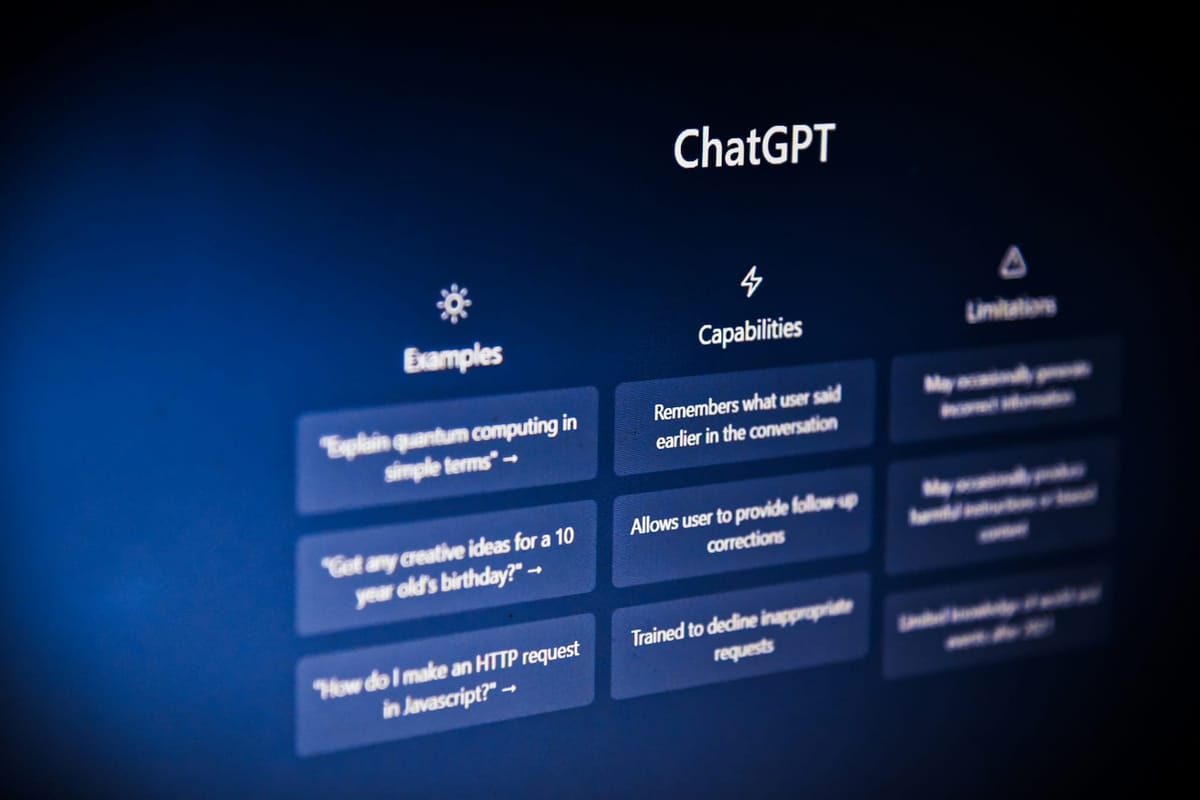
When I first saw the announcement that Tricia Bertram Gallant and David A Rettinger were putting out a new book called The Opposite of Cheating: Teaching for Integrity in the Age of AI, I immediately thought about reviewing it here. Based on the title alone, it addresses one of the most urgent questions in pedagogy in higher ed today.
When it comes to AI in higher ed, the proverbial horse has already left the barn. Only a few weeks ago, I heard a scholar deliver a passionate defense of old-school great books courses and readings in the European Enlightenment tradition – except that she was having students read key passages aloud in class and hand-write their reflections and assessments, because the students weren't actually reading the great books at all. They were reading AI summaries. Cal State faculty are raising serious concerns, after the Chancellor’s Office first announced in February 2025 that the CSU system will become the first Artificial Intelligence (AI)-empowered university system (challenged in more detail in this preprint). And check out this terrifying video of OpenAI integrated in Canvas, completing a whole assignment with the click of a button.
Why cheat?
AI's implications for academic integrity don't end with students. Academics themselves, like professionals in other fields, have succumbed to temptation too. Some of them don't even care enough to cover their tracks, and leave prompt language in when they copy-paste from an LLM: "Regenerate response," "Certainly, here's a ___," or even "Please note that as an AI language model, ..." are telltale signs. So are citations of plausible but imaginary books and articles. A healthy peer review system where qualified scholars have the time to screen articles more carefully would prevent this, but that's a problem for another day.
I see more and more AI skeptics and Luddites on Bluesky these days (complimentary), refusing to have anything to do with LLMs. They suck water and electricity out of households (leading to a resurgence in fossil fuel consumption), they might be making users dumber, and they get things wrong a lot of the time. Erysichthon-like, they swallow libraries whole, and then they spit out a pallid, mediocre, reductive version of the body of knowledge to which we are supposed to be contributing. They can't produce an original argument, by definition. They don't cite their sources properly – a little like a bad museum displaying artifacts with vague or obviously fraudulent provenance. As two Dutch scholars wrote last week, "AI erodes academic freedom, weakens critical reading, and subordinates the pursuit of knowledge to corporate interests."
So why would a PhD-level nerd use ChatGPT to write an article? It's not like we get paid for them. We do get lines on our CVs and some degree of prestige. And if you care more about the prestige or CV than the actual production of an original argument or new knowledge, then what do you care? Most of us don't have as much time as we'd like to spend on them, though, so shortcuts might be seductive. An overwhelming feeling of anxiety facing a blank word processor screen or a bunch of deadlines falling in the same week might also lead to an unethical decision in a moment of panic.
As it turns out, Bertram Gallant and Rettinger attribute students' use of LLMs and other forms of cheating to all the same impulses. And this is nothing new. Jim Lang, who wrote Cheating Lessons: Learning from Academic Dishonesty in 2013 when ChatGPT was just a twinkle in Sam Altman's eye (or that of one of his engineers), found that plagiarism and cheating have been ever-present in academic life for millennia (mostly paying others to take tests or write papers), at surprisingly high rates.
Just because it's ubiquitous doesn't mean it's no big deal. Lang, Bertram Gallant, and Rettinger agree: we should still discourage cheating and penalize it when we see it. But they encourage us to treat it as an error of judgment and a formative learning experience, giving the wayward student a chance to do better. Plagiarism detectors and surveillance tactics are just going to get you into an arms race with students that you will not win, they advise, and some students will always cheat, but there's still a lot you can do to make the situation better. And, they suggest, it's also possible to reduce cheating through strategic curriculum design.
Academic dishonesty as a design challenge
Jim Lang pulls from Dan Ariely’s The (Honest) Truth About Dishonesty: How We Lie to Everyone - Especially Ourselves to generate a list of conditions that promote cheating:
- work that seems pointless per se and feels unsatisfying, a hoop to jump through in order to get to an extrinsic reward like a good grade or a diploma;
- a sense of do-or-die urgency, because the stakes of success or failure are high, because the work must be done very quickly, and/or parents or others are putting a lot of pressure on the learner not to fail;
- a perception that others are cheating all the time so it's normalized;
- or a lack of confidence in one's own ability to do the assignment, or that their own work has value (i.e. self-efficacy).
Lang devotes chapters to designing courses and assessments to avoid each of these situations – reducing cheating by removing the conditions and incentives that lead to it. Students should have opportunities to do work that feels personally meaningful to them in their professional or personal lives; they should have choices of what topic to study, for example, and have space to ask their own questions and pursue answers. Ask them how the material connects to their experiences, or what they're watching or reading. You can even let them in on some of the real dilemmas or puzzles facing your field and see what they think. They shouldn't feel like Psyche or Cinderella performing miserable and pointless tasks to satisfy a cruel goddess or stepmother. It should be clear to them that you, a human, want to read the thoughts that they, a human, write. Human connection creates more of a sense of obligation and exchange.
That might mean changing some long-standing assignments, and doing some serious reflection work on learning objectives: are you just assigning the same work you had to do when you were a student, or do you have a good reason for it? Bertram Gallant and Rettinger suggest including integrity itself as a learning objective for every assignment, in fact. Notre Dame anthropologist Susan Blum asks:
What is it that we are trying to accomplish through our teaching? Are our students principally supposed to learn something? Does this require independence and originality? If they copy homework, is it possible that they are still learning? If they rush through it at 3 A.M., are they learning at all? In a world where basic facts are often a Google search away, why do we still insist on individual, independent mastery? A TV game show allows "lifelines" —people contestants contact for answers. Collaboration is increasingly accepted everywhere. Why not in college? Most of our students will not become scholars and academics. They enter our world for a short time, with goals quite different from ours. Do they need to be original in everything they do? Is that even possible? (Susan D. Blum, My Word!: Plagiarism and College Culture. Cornell University Press, 2009.)
As for the feeling of urgency (a feeling that leads to bad decisions in myriad ways for all of us, I suspect), these authors all suggest that we can design some of that away too. Can you set a deadline as a "best by" date instead of a hard boundary, and offer extensions on request? Can students get a one-time free pass for late work? Don't be flexible at your own expense, but if you're not grading things all at once at the deadline, then why insist on receiving everything then? And instead of one or two exams determining students' whole grade for the semester, most of us now break those assessments up into many smaller ones, spaced out and perhaps scaffolded, to reduce the stakes of failing any one. Practice tests (possible to generate with LLMs, I'm told) can also help students to develop more self-efficacy and experience less panic while doing the real thing.
Rhetorically, Bertram Gallant, and Rettinger emphasize that we should be talking to students about mastering skills and knowledge, not about performing well or getting good grades. They've got lots of tips for writing rubrics and learning objectives with this framing, and "Mastery Grading" is the subject of many articles and books if you want to read more about it. Tell students you genuinely want to know what they think and how they arrived at their conclusions, even if it's a little rough.
J. Frank Yates used to say, "Writing is nature's way of telling you how unclear your ideas are." The writing process is often more important than the product itself because it is in the process of writing where thinking gets done. This is why David is fond of saying that the point of an assignment is not to get the work done, but to do the work, Many writing (and other) assignments are intended to engage students' critical thinking and argumentation skills just as much as their ability to communicate their conclusions. When students don't learn the process of writing (or statistical calculations or any other skill), they lose an essential strategy for critical thinking and general problem solving. It may be true that future students will be able to organize arguments and understand complex systems without writing about them, but because human academic history is intertwined with our written tradition, a whole new set of techniques for critical thinking will need to be developed. (The Opposite of Cheating)
Lang makes a similar point about mastery too, and suggests an analogue from Hunger Games: in the gym before the games begin, competitors choose the weapons or skills they'll focus on, and they're tested on their mastery of those chosen specialized skills after they've practiced. (Obviously the background atmosphere of terror and literally cutthroat competition is not something he wants us to reproduce.) Assessments only exist to test whether students have developed the muscles and techniques we wanted them to, after all.
These strategies won't prevent all students from cheating, but for students who are persuadable, they help. I also really appreciated how each of the authors I've cited here also looked at cheating and integrity more broadly, but this post has already gotten rather long, so tune in for Part 2 next week!
Recommended Reading
Tricia Bertram Gallant and David A Rettinger. 2025. The Opposite of Cheating : Teaching for Integrity in the Age of AI. Norman: University of Oklahoma Press.
- from Bertram Gallant on the POD Listserv for educational developers:
- "if you'd like some easy-to-access concrete ideas, you can check out this site - https://sites.google.com/ucsd.edu/crafting-a-genai-and-ai-policy. Specifically in this section - https://sites.google.com/ucsd.edu/crafting-a-genai-and-ai-policy/documentation - there are worksheets/instructions you can use/adapt."
- "I wanted to make sure you were all aware of the International Center for Academic Integrity (ICAI) - https://academicintegrity.org - and in particular, its annual conference. This year it is in the fabulous city of Denver!Please check it out - https://academicintegrity.org/aws/ICAI/pt/sp/annual - and if you can, register to join us. It is an informative conference with kind people dedicated to teaching, learning and assessing with integrity. Fresh ideas, perennial advice, and amazing colleagues.If you have any questions about ICAI (I'm President Emeritus) or the conference, please don't hesitate to ask."
- "I wanted to make sure you all know about the amazing people we are featuring through our (informal) Podcast of the same name. People like Flower Darby, Tina Austin, Lew Ludwig, Laura Dumin, Christopher Ostro, Jeanne Beatrix Law, Joshua Eyler, Danny Liu, Jason Gulya, Mike Perkins, Leon Furze, Anna Mills, Phillip Dawson and more! The point of the podcast is to bring to life the ideas we present in the book to give educators, instructional designers, and other supporters of teaching/learning concrete examples of what can be done. You can view Season 1 and Season 2 episodes (aired weekly) here - https://www.theoppositeofcheating.com/blog/ - or listen on Spotify (https://open.spotify.com/show/5fhrnwUIWgFqZYBJWGIYml) or Apple (https://podcasts.apple.com/us/podcast/the-opposite-of-cheating/id1829724960)."
Susan D. Blum, 2009. My Word!: Plagiarism and College Culture. 1st ed. Cornell University Press.
James M. Lang, 2013. Cheating Lessons: Learning from Academic Dishonesty. Cambridge, Mass: Harvard University Press.
A few articles on AI in higher ed:
Olivia Guest and Iris van Rooij. Oct 17, 2025. "AI Is Hollowing Out Higher Education." Project Syndicate.
Andrew Simmons, "Why Students Cheat—and What to Do About It: A teacher seeks answers from researchers and psychologists." Edutopia, April 27, 2018
Johan van Niekerk, Petrus M.J. Delport, Iain Sutherland. 2025. "Addressing the use of generative AI in academic writing." Computers and Education: Artificial Intelligence, Volume 8. - a paper about having students critique a ChatGPT-generated paper as an active learning exercise
Gu, J., & Yan, Z. (2025). "Effects of GenAI Interventions on Student Academic Performance: A Meta-Analysis." In Journal of Educational Computing Research.
Matthews, K. E. (2025). "Five guiding principles for navigating artificial intelligence in students as partners practice to preserve pedagogical trust." International Journal for Students as Partners, 9(2), 1–8.
Digital Literacy: Artificial Intelligence and ChatGPT from University of Missouri St. Louis, including a decision tree for when it's appropriate to use an LLM and a disclosure form for its use on assessments.
